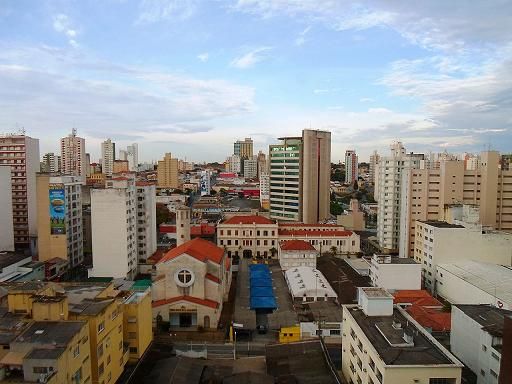Campinas, Brazil becomes first LatAm city to join WBCSD sustainability project
The city of Campinas in Brazil has become the first Latin American city to join the World Business Council for Sustainable Development (WBCSD) Sustainable Mobility Project

The city of Campinas in Brazil has become the first Latin American city to join the World Business Council for Sustainable Development (WBCSD) Sustainable Mobility Project.
Representatives from Campinas met with delegates of the WBCSD Sustainable Mobility Project (SMP2.0) and representatives of its supporting companies on 4 September.
Member companies of the of the worldwide Sustainable Mobility Project include BMW, BP, Bridgestone, Brisa, Daimler, Deutsche Bahn, Ford, Fujitsu, Honda, Michelin, Nissan, Pirelli, Shell, Toyota and Volkswagen.
This meeting marks a significant step in the implementation of the worldwide project, which brings together a global cross sector group of mobility related companies and other stakeholders to accelerate progress towards delivering the vision of “universal access to safe and low-impact mobility” for both goods and people.
By 2050, 70 per cent of the world's population will live in cities – where the key for a sustainable future for humanity resides.
City governments around the world are preparing to face this challenge by pursuing ambitious sustainability visions to become more competitive, resource efficient, resilient and inclusive.
Reaching these goals require major transformations in urban infrastructure systems including mobility, which provides access to basic needs such as health, employment and education.
An in-depth analysis of the mobility system is hence integral to the realisation of sustainability objectives.
Together with the Campinas city authorities SMP2.0 will help address mobility-related challenges and develop a set of multimodal solutions that will extend access to safe, reliable and comfortable mobility for all, whilst aiming for affordability, zero traffic accidents, low environmental impact, and reduced demand on energy and time.
SMP2.0 portrays a radically different transportation landscape in which pedestrian, bicycle, private car, commercial and public transportation are woven into a connected network that saves time, conserves resources, lowers emissions and improves safety.
The project aims to optimise the system in its entirety with the automobile being only one element of a broader transportation ecosystem.
In 2013, the project categorised global cities into groups according to their mobility characteristics and nominated six cities as demonstrator cities to develop a roadmap for sustainable mobility together with the city government and related stakeholders.
With its desire to deliver more sustainable mobility solutions, Campinas was nominated as one of these six demonstrator cities with the participation of BP, Ford, Daimler, Pirelli and Shell.
WBCSD and the city will work together for over a year to produce a roadmap for scaling up the implementation of sustainable mobility solutions in Campinas by using the latest technologies, systems and management approaches to improve mobility and increase the quality of life.
Michael Fahy, Director of the WBCSD Sustainable Mobility Project, said: “By working with leading cities such as Campinas, this project will help cities move towards improving sustainable mobility for all. The city has a real desire to improve the movement of people and goods and make them more sustainable. This project has the potential to have a real positive impact on people’s lives, the environment and the economy.”
Jonas Donizette, the Mayor of Campinas, said: “Sustainability is the best choice for enhancing economic development, which will in turn improve the quality of life, the environment as well as providing social benefits.”

